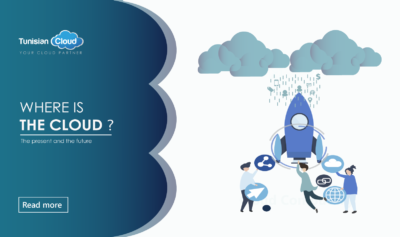Until recently, the word cloud didn’t mean more than the clouds we see up on sky is not clear, now, it has a whole other meaning, and a whole other world, where many old notions are no longer valid.
What is the “Cloud”? and what is cloud computing ?
A brief history of Cloud
It was the year 1963, DARPA (the Defense Advanced Research Projects Agency), presented MIT with $2 million for Project MAC.
The funding included a requirement MIT develop technology allowing for a “computer to be used by two or more people, simultaneously. », it acted as a primitive Cloud with two or three people accessing it.
The word “Virtualization” was used to describe this situation, though the word’s meaning later expanded. Later on the 70’s, the meaning of Virtualization started shifting to what we know now, virtual machines that act like real computers, with a functional OS.
In 1997, Cloud computing was described by Professor R. Chellapa (Emory University) as “computing paradigm, where the boundaries of computing will be determined by economic rationale, rather than technical limits alone.”
In 2002, Amazon introduced its web-based retail services, and 4 years later, AWS was launched, which offers online services to other websites, or clients.
In the same year, Google launched the Google Docs services.
And in 2007, IBM, Google, and several universities joined forces to develop a server farm for research projects needing both fast processors and huge data sets.
And boom! just like that, the word cloud and cloud computing spread out and everyone was using them, years later we had products and services like IBM Smart Cloud framework (2011), apple also launched I Cloud, which focuses on storing personal information, Microsoft too started advertising for cloud services on TV, and Oracle Cloud was out there too by 2012.
Point is, although is a very recent concept, cloud is now the hot-shot of IT, and probably will be for the next decades, as we go further and further to a more digital world where everything is connected and we need more processing power to complete more complex calculations.
The Cloud, the present and the future
Due to global interest in cloud services and the disruption they are causing across various sectors, AWS for example has played an increasingly important role in the cloud services industry and has become an important revenue earner for Amazon. In 2013, AWS earned revenues of 3.1 billion U.S. dollars which had steeply increased to 12.2 billion U.S. dollars in 2016.
The cloud market is growing rapidly and represents an important opportunity for the retail and IT giant. The overall cloud services market is expected to experience a compound average growth rate of 13.4 percent between 2016 and 2020, with cloud infrastructure and platform services expected to grow at a rate of 23.3 percent and 18.2 percent respectively.
Almost everything in the digital world is connected to the cloud in some way or another — unless it’s specifically kept in local storage for security reasons.
As tech giants and startups find new ways to organize, process and present data cloud computing will become a more and more integral part of our lives.
“If it is not on your computer, it is on the Cloud”
Cloud with its services has already changed the way we store our data, it has also changed the landscapes for websites, we no more rent servers or install local ones, web-hosting companies count by the thousands worldwide, and everyone is on the race to migrate it is business to the Cloud.
Why you should migrate your business to the Cloud?
Many businesses have adopted Cloud Computing in their operations in the past few years.
Using Cloud services, companies no longer spend large amounts of money developing and installing software to improve their operations.
Cloud computing enables your business to access software on the internet as a service, and it is a safe way to store or share data.
Here are three good reasons to consider migrating to Cloud:
- Less expensive: reduced costs
Running a data center is really expensive, from purchasing equipments, to installing them, to buying software license, to hiring technicians to maintain the center, it all adds up to a huge amount of money spent on things you may never use to their full capacity.
Providers charge cloud computing services based the features, storage, and number of users, time, and memory space among other factors.
Hence, you can choose a package that suits your budget, pay for what you use and no more.
- Scalability
The traditional way of planning for unexpected growth is to purchase and keep additional servers, storage, and licenses. It may take years before you actually use the reserve resources.
Scaling cloud computing services is easy. You can get additional storage space or features whenever you need them. Your provider will simply upgrade your package within minutes as long as you meet the additional cost.
- Data security
Sometimes storing data on the cloud is safer than storing it on physical servers and data centers. A breach of security at your premises can lead compromised data security if laptops or computers are stolen. If you have data on the cloud, you can delete any confidential information remotely or move it to a different account. Breaching the security measures on clouding platforms is difficult.
In a world moving forward to digital, it is always the right moment to migrate your business to Cloud, and as always, we are your Cloud partner!
Consider reaching out to us for any consultation about Cloud, migrating to Cloud and what will Cloud bring to your work and business, no matter how small or big it is.
You can also take a look to our certificates related to cloud and ask around for the next session


